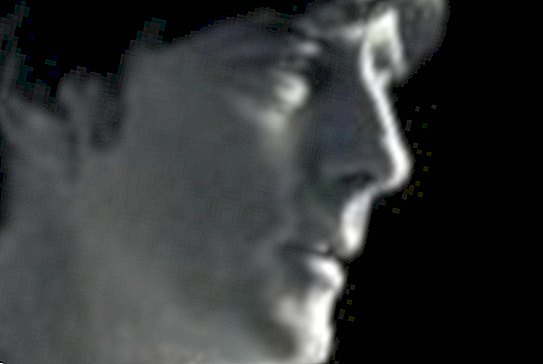Joachim Löw: "We need courage for weakness"

ChroniquesDuVasteMonde: Where did you learn your sense of style? In the 80's you should have seen kicker typical with gold chains around your neck and Vokuhila on your head in the square.
Joachim Loew: (laughs) I really can not remember a gold necklace, I do not think so. Fashion is a matter of well-being. For example, I feel more comfortable in dark blue and black than in bright colors. I would never wear a multi-colored sweater or a striped shirt, I do not care.
Read the full interview in the next ChroniquesDuVasteMonde: From Wednesday, February 10, 2010, at the kiosk.

ChroniquesDuVasteMonde: A national coach, with whom we talk about fashion, about cosmetics and yoga: breaking new times in the macho world, football?
Joachim Löw: The new times have already begun, football has changed in general. The 70s, 80s were the time of the instructions: The coach instructed, the player performed and finished. As a player that has already been questioned. But you could not speak openly, there was no own opinion. Today, players want a very, very high level of communication. They endure everything, endure criticism, even harsh criticism, as long as it is factual.
ChroniquesDuVasteMonde: They embody a new type of coach, but you have played yourself in the more authoritarian years. When did you change?
Joachim Löw: I did not have to change. As a player, I was more of a rebel because I never agreed with the authoritarian system. Of course the coach has to have the last word, that is always true, and that still applies. But it makes me crazy if I get any instructions and can not question them, in conversation, in a very normal way. It would have been easy to convince me if I had known the reasons.

ChroniquesDuVasteMonde: Are two worlds clashing in football? The new men on the old guys who still pursue a blood-sweat-and-tears ideology?
Joachim Loew: I would not put it that way. But something is already moving. For example, Jürgen Klinsmann and I brought a sports psychologist to the national team six years ago. We were laughed at, there was ridicule and mockery. Nobody laughs anymore.
ChroniquesDuVasteMonde: A footballer may now show weakness?
Joachim Loew: Why should not men sometimes comment when they have a bad day? For me personally, it is a strength when a player comes to me after the game and tells me openly why he could not retrieve his performance today as usual.
ChroniquesDuVasteMonde: Bayern player Sebastian Deisler has made his illness public, he suffered from depression. Afterwards he was vilified as "Miss Deisler" and "Deislerin". He has dropped out of professional football. The public did not learn of Robert Enke's depression until after his death. Is weakness in competitive sports even possible?
Joachim Löw: Of course, the principle of performance always applies in professional football. And there will always be competition. But that can also be positive if you make it open. But I think that players need courage for weakness. And that we all do well in dealing with alleged weaknesses more openly. I would have wished that Robert had the strength to talk about his illness. I also experienced Sebastian Deisler as a national player. Jürgen Klinsmann and me, we have already noticed: We can not get to him. An incredibly talented footballer, also a very sensitive person, but he has built a wall around himself. We did not manage to break this wall.
ChroniquesDuVasteMonde: What has changed?
Joachim Löw: In the past, someone who expressed a weakness was cornered and treated accordingly. But footballers are not robots. The death of Robert Enke shows that some can not handle the expectations and objectives so easily. It was good that we all stopped after Robert's death. Maybe that changed something. That the football has become more sensitive and there is a certain tolerance and a certain understanding.
Read the full interview in the next ChroniquesDuVasteMonde: From Wednesday, February 10, 2010, at the kiosk.










